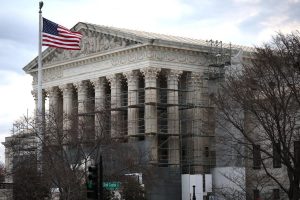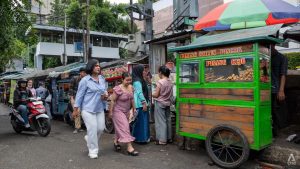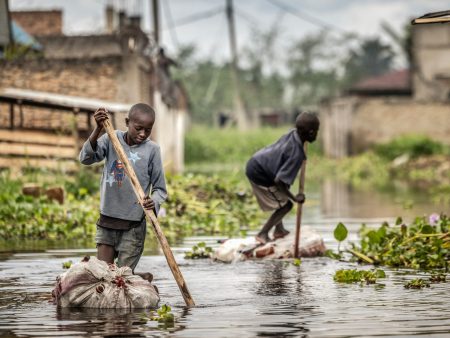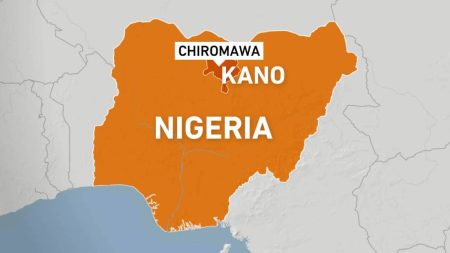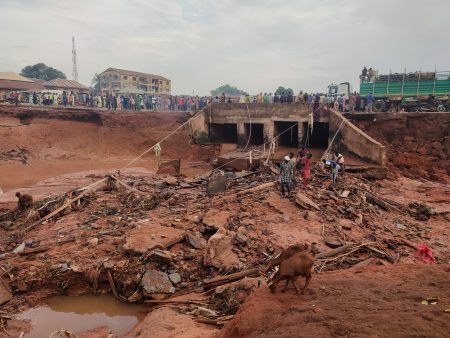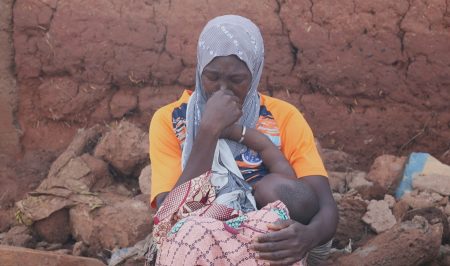On Sunday, a tragic incident unfolded at a football stadium in Nzerekore, Guinea, where a stampede during a crowded match led to severe casualties. According to human rights organizations, approximately 135 people lost their lives, vastly exceeding the 56 fatalities reported by Guinea’s military-led government. The disparity in numbers has sparked significant controversy and raises concerns over the official response to the incident. Eyewitness accounts, testimonies from families, and local media reports have contributed to the alarming tally presented by human rights groups, most of whom indicate that many victims were children under 18 years old. In addition to the confirmed deaths, over 50 individuals remain unaccounted for, heightening fears and prompting calls for clarity from authorities.
The chaos at the match originated from a disputed refereeing decision that incited crowd violence, compounded by the police’s use of tear gas in an attempt to control the situation. As panicked spectators sought refuge from the escalating chaos, a stampede ensued. The event was particularly significant as it was the final of a cup tournament held in honor of the military regime’s leader, Mamady Doumbouya, who came to power following a coup in 2021. The history of political instability under Doumbouya’s rule adds another layer of complexity to the tragedy, placing scrutiny on the government’s role in ensuring public safety during large gatherings.
The Collective of Human Rights Organizations of the Nzerekore region has been vocal in its criticism of the actions taken by security forces, asserting that they employed excessive force during the incident. Their statement cited that the authorities seemed more focused on securing officials than protecting the crowd and that cars transporting officials recklessly hit fleeing spectators amidst the panic. The organization lamented that the venue was overcrowded, with pathways obstructed by security personnel, which only intensified the peril in an already dangerous situation.
In contrast to the government’s figures, other groups including the opposition alliance, Living Forces of Guinea (FVG), have reported a death toll of around one hundred, and the High Council of the Diaspora estimated that nearly 300 had perished, predominantly affecting young people and teenagers. This wide range of casualty figures has fueled public outrage and distrust towards the military-led government’s narrative. It further illustrates the immense struggle for truth and accountability in a nation comprising deeply entrenched governmental distrust and fear.
In response to the mounting controversy and potential unrest as a result of the diverging reports, Guinea’s military-led government has issued a stern warning against the dissemination of “unverified” or “malicious” information concerning the incident. Justice Minister Yaya Kairaba Kaba communicated through social media that sharing such information threatens public order and could lead to severe consequences, including arrest and prosecution. This assertion raises critical questions about censorship and the government’s accountability in addressing the incident; critics argue that such actions could stifle legitimate discourse and hinder the pursuit of justice for the victims and their families.
Amidst the outrage and demands for accountability, President Mamady Doumbouya has pledged to initiate a commission of inquiry aimed at investigating the causes behind the tragic event and ensuring those responsible are held to account. The establishment of such a commission is seen as a critical step in navigating the complex aftermath of the tragedy, providing a platform for voices of the victims, and potentially restoring public trust in the administration. However, the effectiveness and transparency of this inquiry will be paramount in determining whether it will meaningfully serve the interests of accountability and justice in Guinea. The ramifications of the incident continue to reverberate throughout the nation, as conflicting narratives and calls for justice highlight the urgent need for both human rights protections and governmental responsibility in Guinea’s evolving political landscape.

